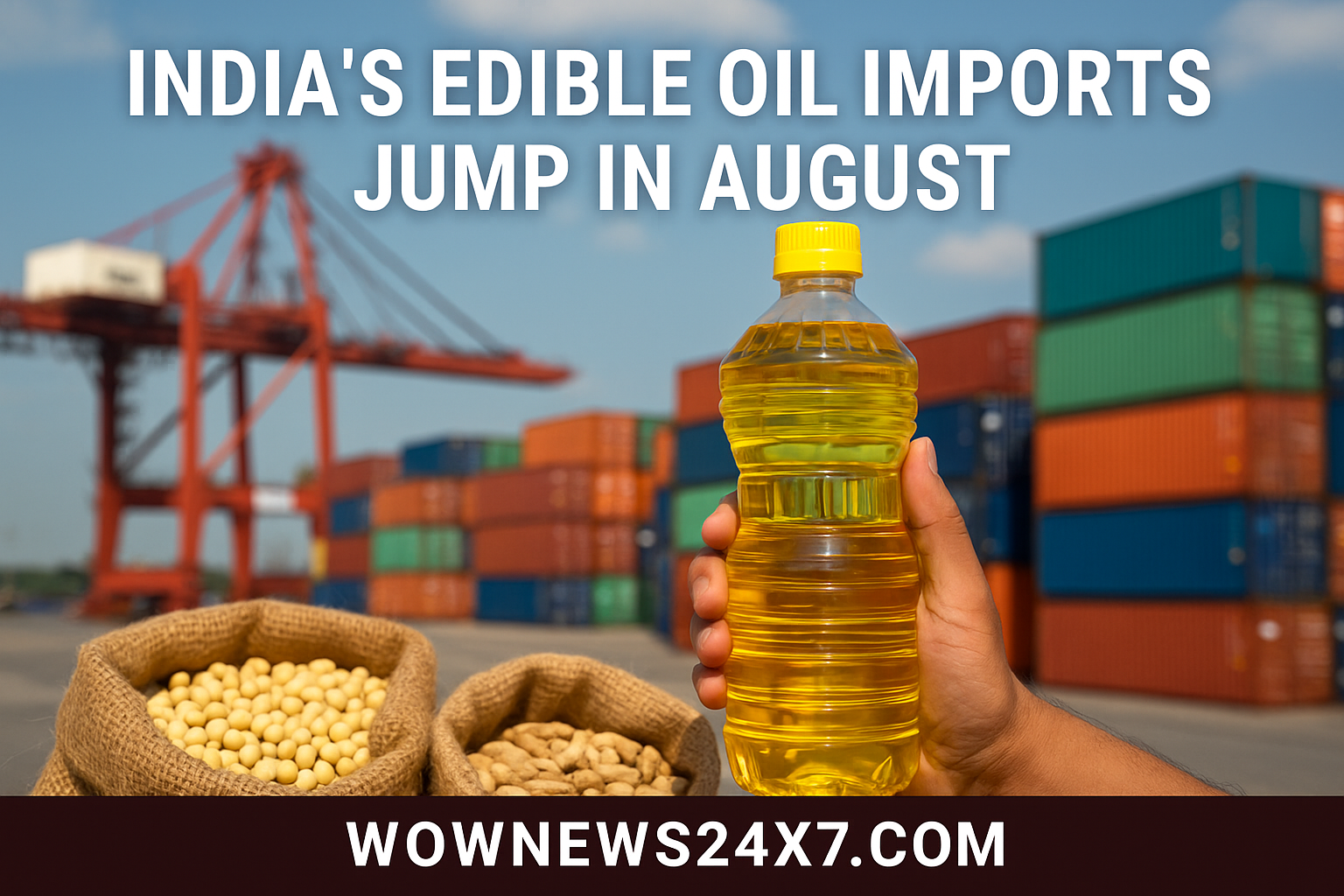India’s vegetable oil imports saw a notable uptick in August 2025, reaching a total of 1,677,346 tonnes, up from 1,579,041 tonnes in July, according to data released by the Solvent Extractors’ Association of India (SEA). The increase was primarily driven by higher imports of palm oil and sunflower oil, while soybean oil imports declined month-on-month.
This shift in import volumes reflects evolving market dynamics, including global price fluctuations, domestic demand patterns, and strategic procurement decisions by Indian refiners and traders. As the world’s largest importer of edible oils, India’s monthly import data serves as a key indicator of both domestic consumption trends and international trade flows.
Breakdown by Oil Type: Winners and Losers
Palm Oil continues to dominate India’s edible oil basket, with imports rising to 990,528 tonnes in August, up from 855,695 tonnes in July. This 15.8% increase underscores the country’s reliance on palm oil, which is primarily sourced from Indonesia and Malaysia. The rise is attributed to competitive pricing and improved availability following seasonal production peaks in Southeast Asia.
Sunflower Oil imports also surged, climbing to 257,080 tonnes in August from 200,010 tonnes in July—a robust 28.6% jump. This increase comes despite geopolitical tensions in key supplier regions such as Ukraine and Russia, suggesting that Indian buyers are diversifying sourcing channels and capitalizing on favorable freight rates.
In contrast, Soybean Oil imports fell sharply to 367,917 tonnes, down from 492,336 tonnes in July, marking a 25.3% decline. Analysts attribute this drop to higher global prices and reduced demand from Indian processors, who are facing margin pressures due to currency volatility and domestic stock availability.
Market Drivers Behind the Shift
Several factors contributed to the August import trends:
Global Price Volatility: Palm oil prices softened in August due to higher production in Malaysia and Indonesia, making it more attractive to Indian buyers. Sunflower oil prices also saw a temporary dip, prompting increased purchases.
Domestic Demand Surge: With the festive season approaching, demand for edible oils typically rises in India. Traders and refiners often stock up in advance to meet the spike in consumption during festivals like Diwali and Navratri.
Policy and Tariff Landscape: The Indian government’s decision earlier this year to reduce import duties on crude edible oils has continued to influence buying behavior. Lower tariffs have made crude palm and sunflower oils more cost-effective compared to refined variants.
Geopolitical Adjustments: Despite ongoing disruptions in the Black Sea region, Indian importers have managed to secure sunflower oil through alternative routes and suppliers, ensuring supply continuity.
Strategic Implications for India’s Edible Oil Sector
India’s edible oil industry is highly import-dependent, with over 60% of domestic consumption met through overseas purchases. The August data highlights the need for:
Diversified Sourcing: As global supply chains remain vulnerable to geopolitical shocks, India must continue to explore new supplier markets, including Latin America and Central Asia.
Boosting Domestic Production: Long-term strategies to enhance oilseed cultivation and processing capacity are essential to reduce import reliance. Government initiatives under the National Mission on Edible Oils – Oil Palm (NMEO-OP) aim to address this gap.
Price Stabilization Measures: With edible oil prices directly impacting household budgets, especially in lower-income segments, policymakers may consider strategic stock releases or subsidies to cushion price volatility.
Outlook for September and Beyond
Industry experts anticipate continued strength in palm oil imports through September, supported by favorable pricing and robust demand. Sunflower oil may remain volatile due to geopolitical uncertainties, while soybean oil imports could recover if global prices stabilize.
The SEA has urged stakeholders to monitor global trends closely and adopt agile procurement strategies to navigate the complex landscape of edible oil trade.
Sources: Solvent Extractors’ Association of India, Economic Times, AgriInsite
